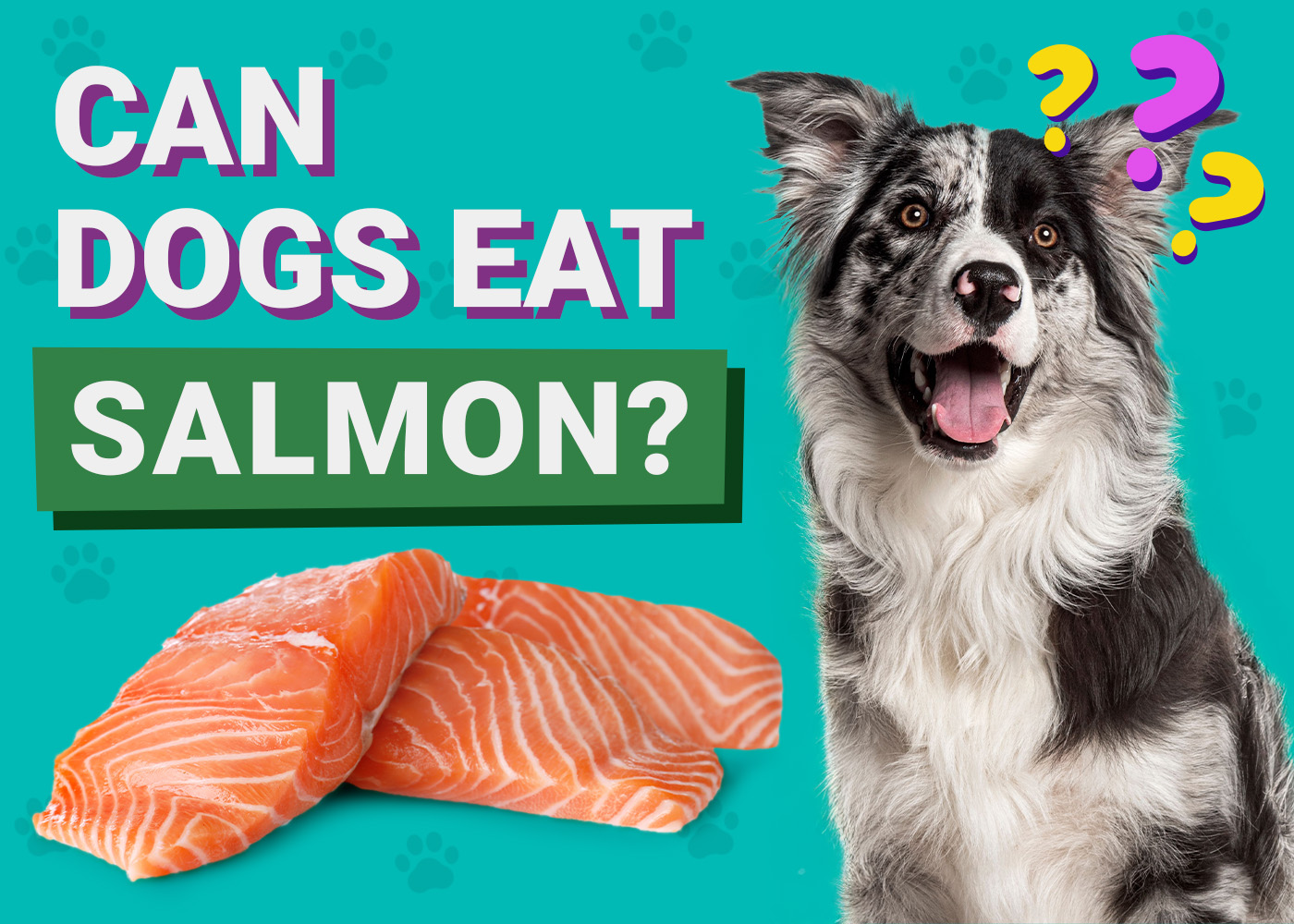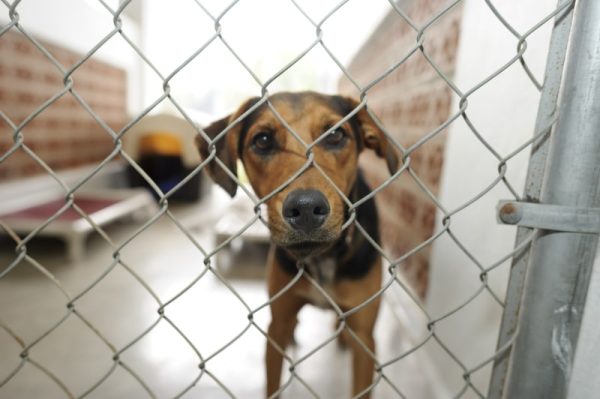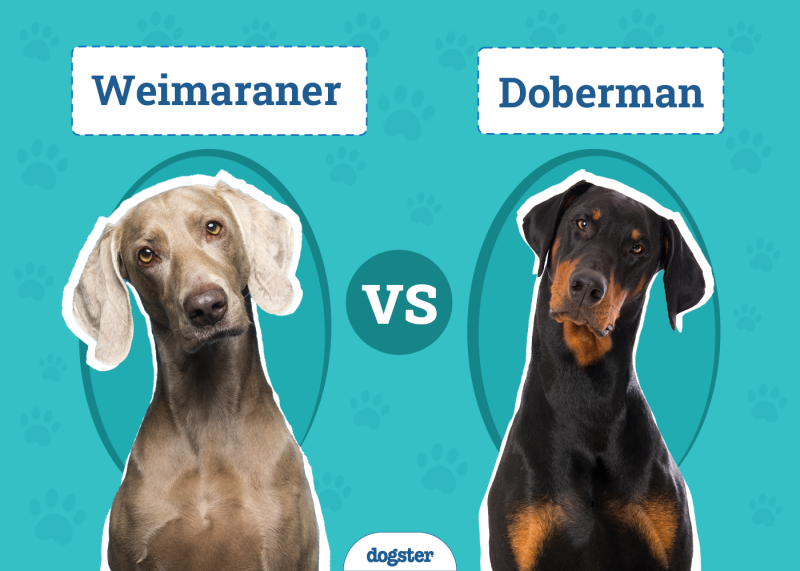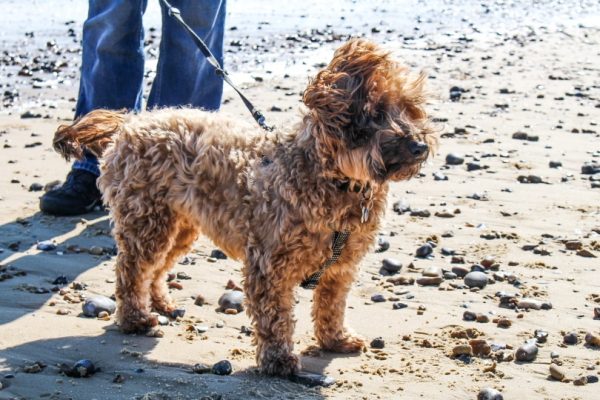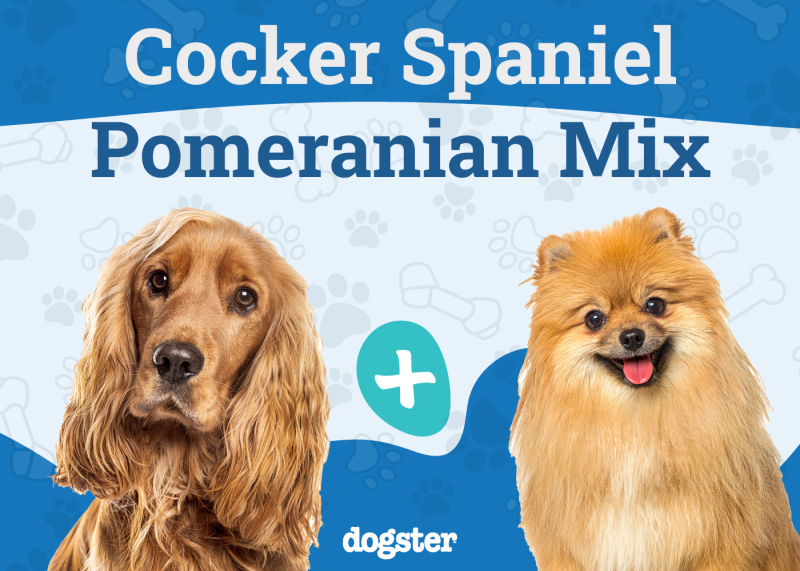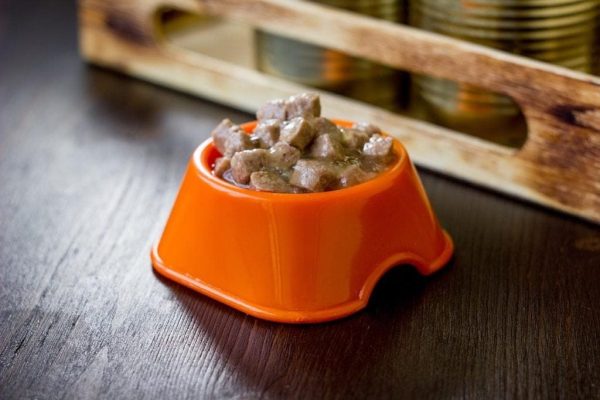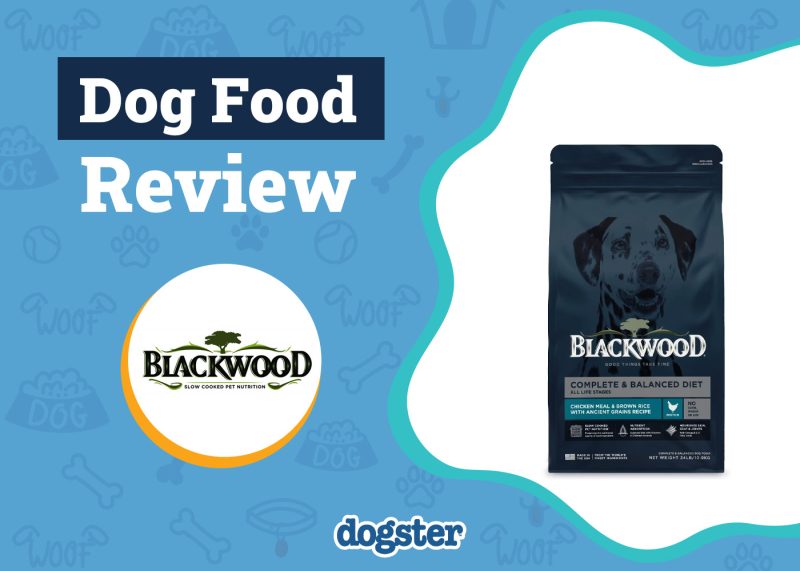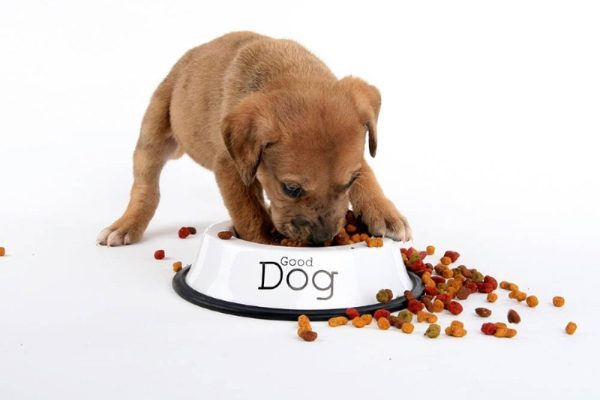In this article
When you think of dog food, you probably think of beef or chicken instead of novel protein sources like salmon. Part of the reason lies in the habitat we associate with canines. Wolves typically live in various areas, such as prairies and forests. Coastlines don’t usually fit in our thinking. Yet, salmon has a lot to offer your pup, which makes it a worthwhile choice.
The short answer is that you can give your dog salmon as an occasional treat. You can also feed your dog a commercial diet containing this protein source so that they can enjoy the numerous health benefits it offers.

Is Salmon Good for Dogs?
Nutritional Value of Salmon
A 100-gram serving of salmon contains a whopping 20 grams of protein. According to the Association of American Feed Control Officials (AAFCO), adult dogs should get a minimum of 18% protein in their food every day, making salmon a good option for your dog.1 It’s also a rich source of magnesium, potassium, selenium, and vitamin A.
Research on human health benefits touts the anti-inflammatory properties of salmon . This is mostly because it contains high amounts of omega-3 fatty acids, which also benefit your dog’s health. On the downside, salmon might not be a great option for an overweight dog that needs to shed some pounds. This is because salmon has a lot of fat at 13.4 grams in a 100-gram serving. An adult dog needs to ingest only 5.5% of fat in their daily diet to maintain their weight.
The calories are another issue: a 100-gram serving of wild salmon has 142 calories, while farmed salmon will contain approximately 208 calories. This is quite a bit, representing more than half of the daily recommended daily caloric intake for a 10-pound male intact dog. However, it’ll likely keep your dog sated. It’s worth noting that salmon doesn’t contain everything your pup needs. Therefore, it’s best given as an occasional treat to add to their diet and not as a staple diet. Nonetheless, your pet will undoubtedly like it if just for its strong smell.
Of course, fish sourced from different areas will vary in how strong it tastes and smells.
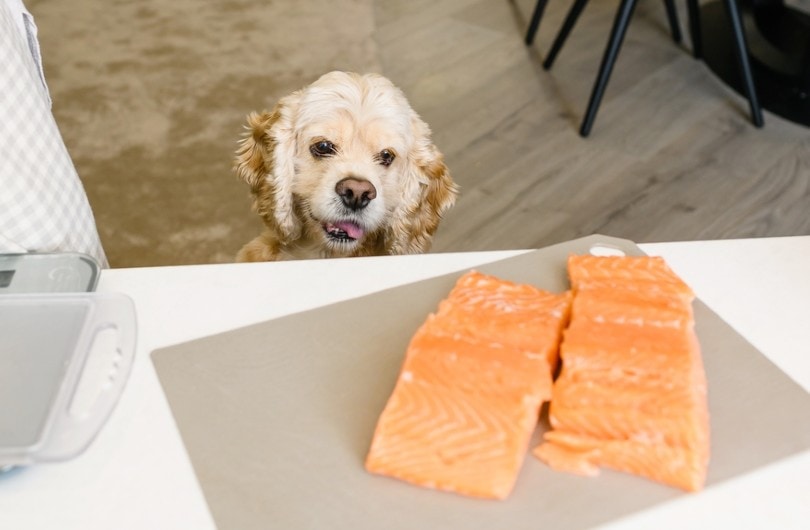

Tips for Giving Your Dog Salmon
You probably heard about Salmon poisoning in dogs. The disease is not actually caused by a toxin but the presence of fluke worms in the salmon named Nanophyetus salmincola infected by the bacteria Neorickettsia helminthoeca. Never give your dog raw or undercooked salmon. If they ingest a raw salmon infected with this bacteria, it could cause signs of salmon poisoning within a week. This problem has been reported in Oregon, northern California, Washington, and southern Vancouver Island (Canada).
Our nutritional figures are based on fresh salmon cooked with dry heat. It will vary depending on how you cook it, but as mentioned it is already pretty fatty, so please avoid adding extra oils. Of course, it’s essential to ensure ingredients that dogs should never get, such as onion and garlic, are not a part of the preparation. Another concern rests with the pin bones for you and your pet. We recommend running your fingers over the meat and removing any you find before giving it to your dog.
The takeaway is to stick to cooked salmon and offer it in moderation. You should always introduce new foods to your pup slowly to avoid vomiting and GI distress. Give your pet a small piece and observe their reaction. If they’re allergic or intolerant of the high-fat content, you’ll know only after your dog consumes it.
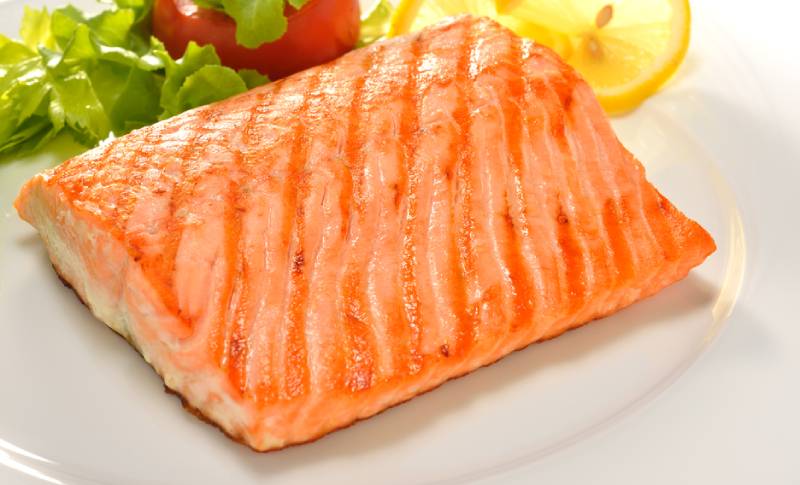

Summing Up
Salmon is an excellent choice for a healthy lifestyle—for people. While dogs can eat it, you should limit how much and how often you give it to your pup. The chances are your pooch will like it, and they could benefit from its high nutritional value. However, it may be too rich for some pets, making it something just for special occasions.
Related reads:
Featured Photo Credit: congerdesign, Pixabay
